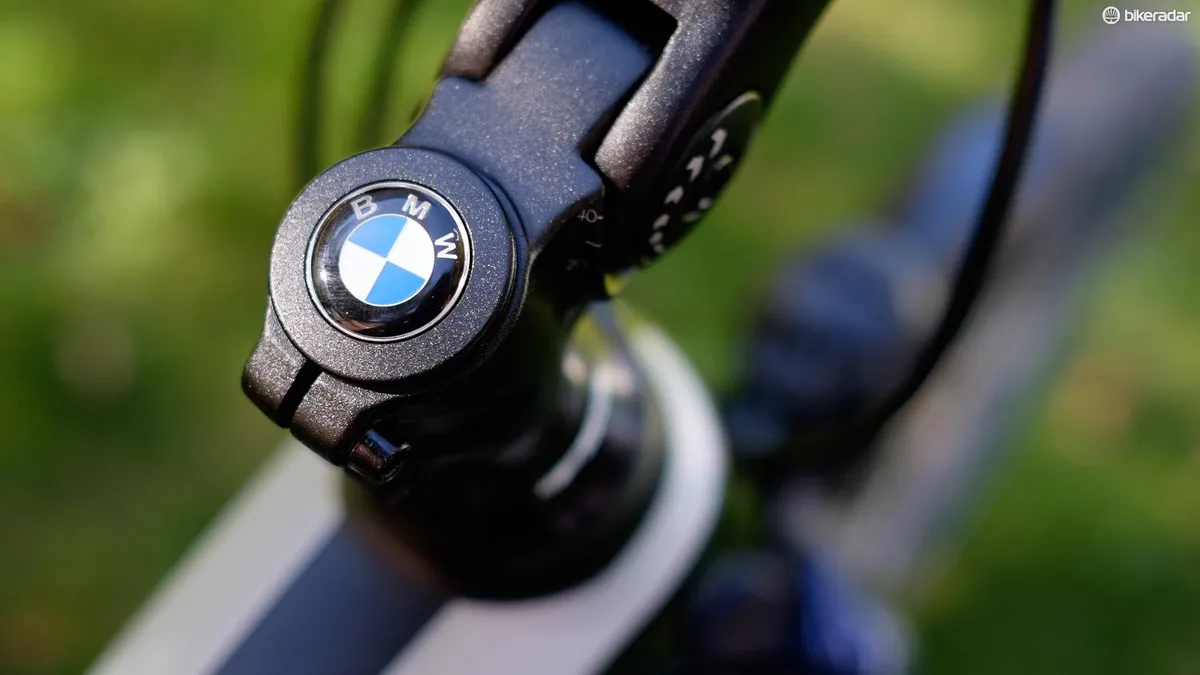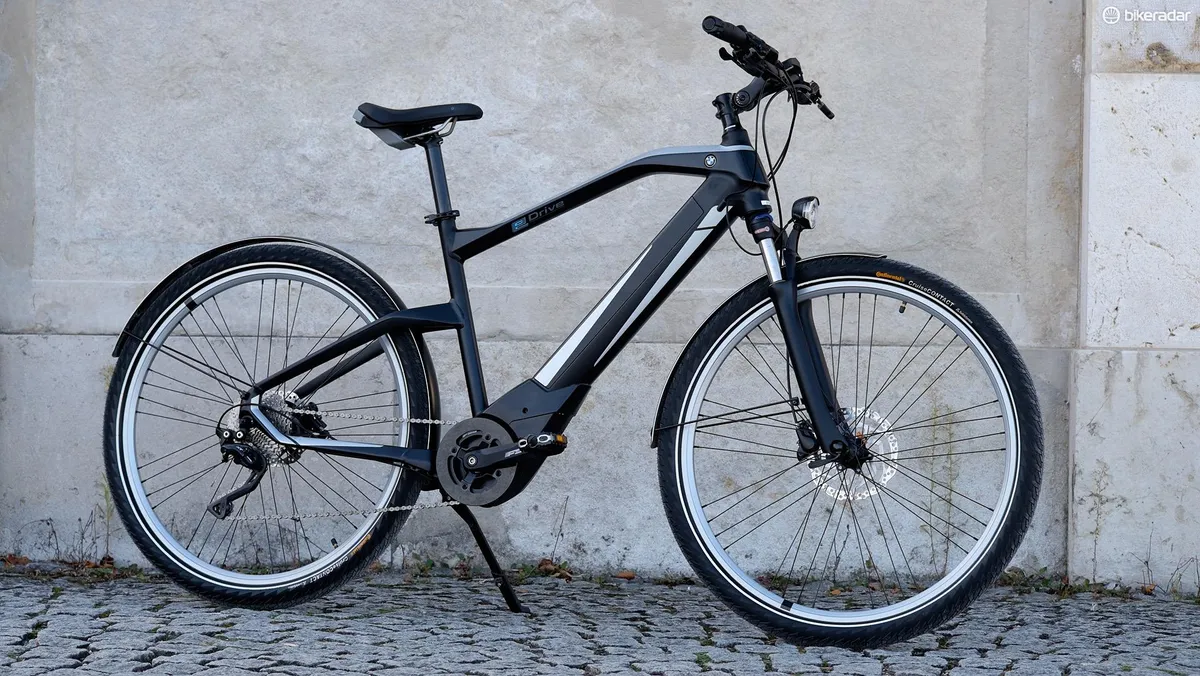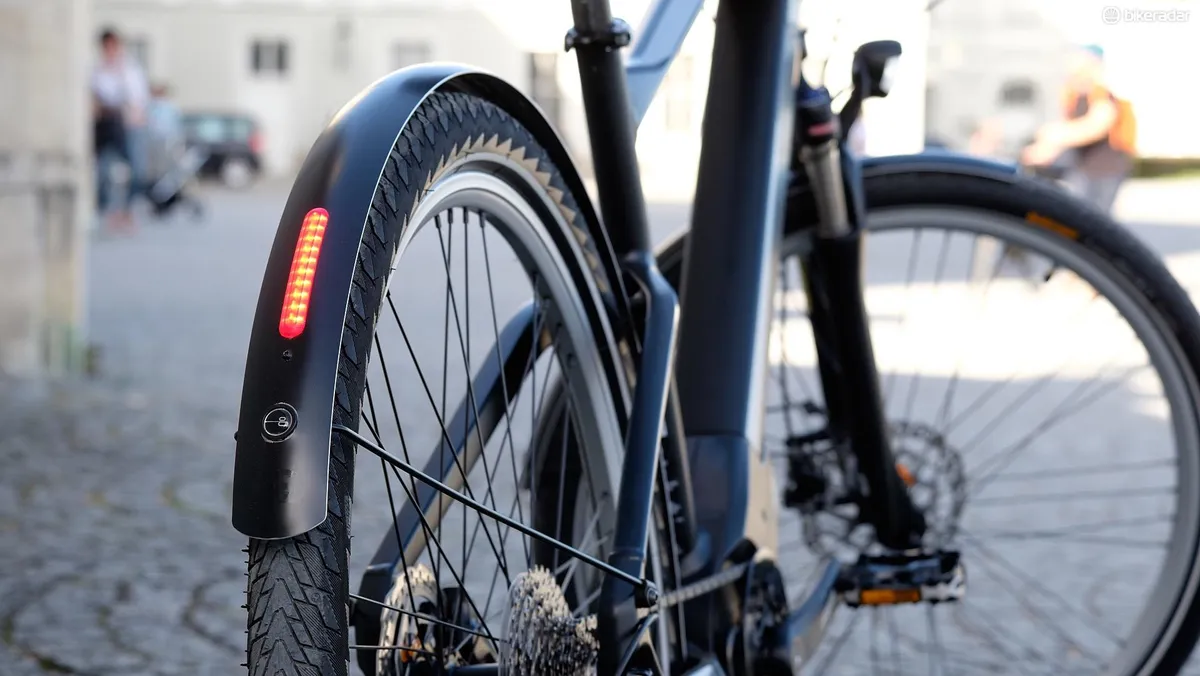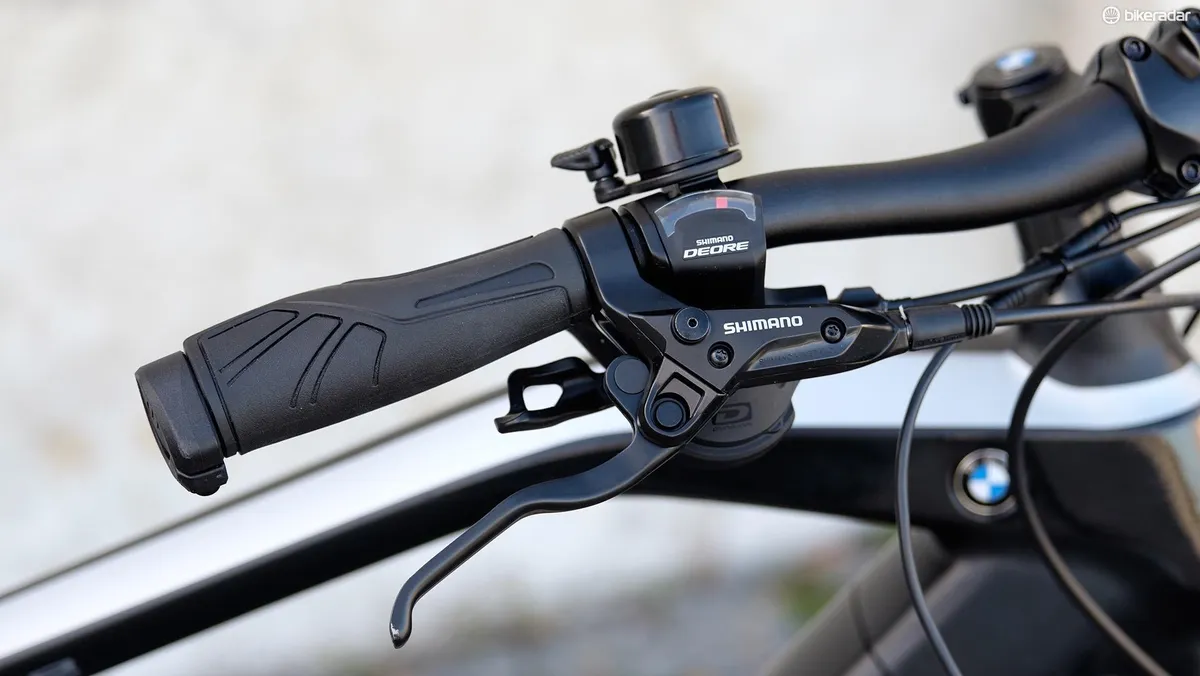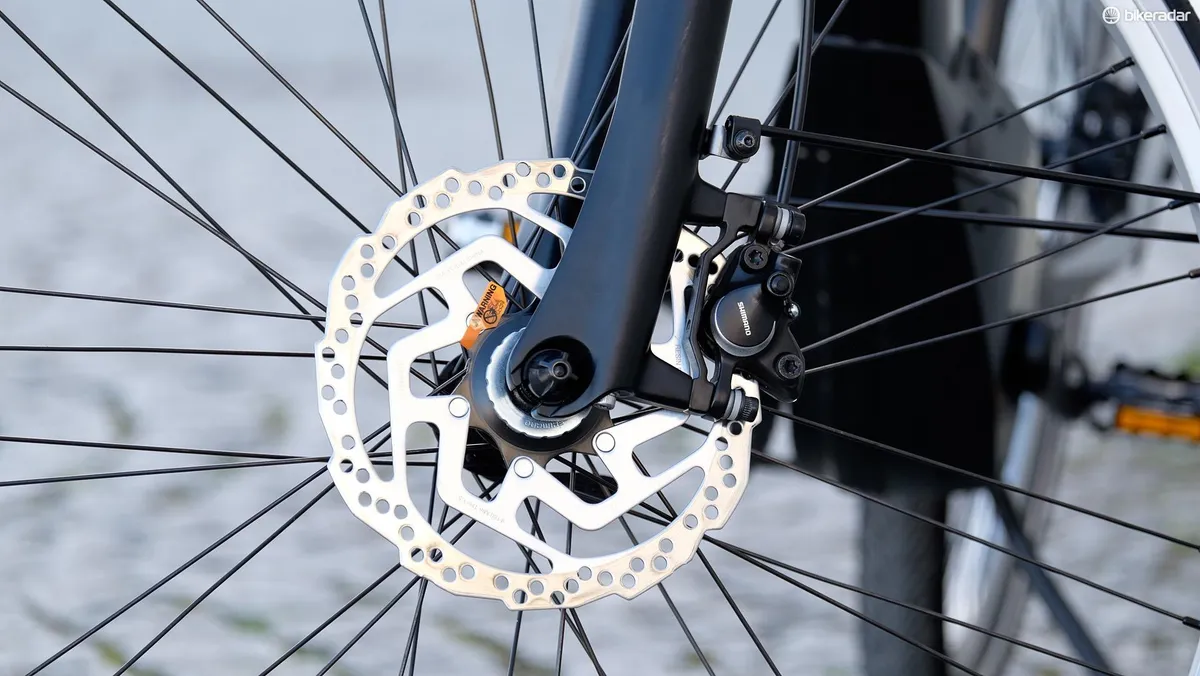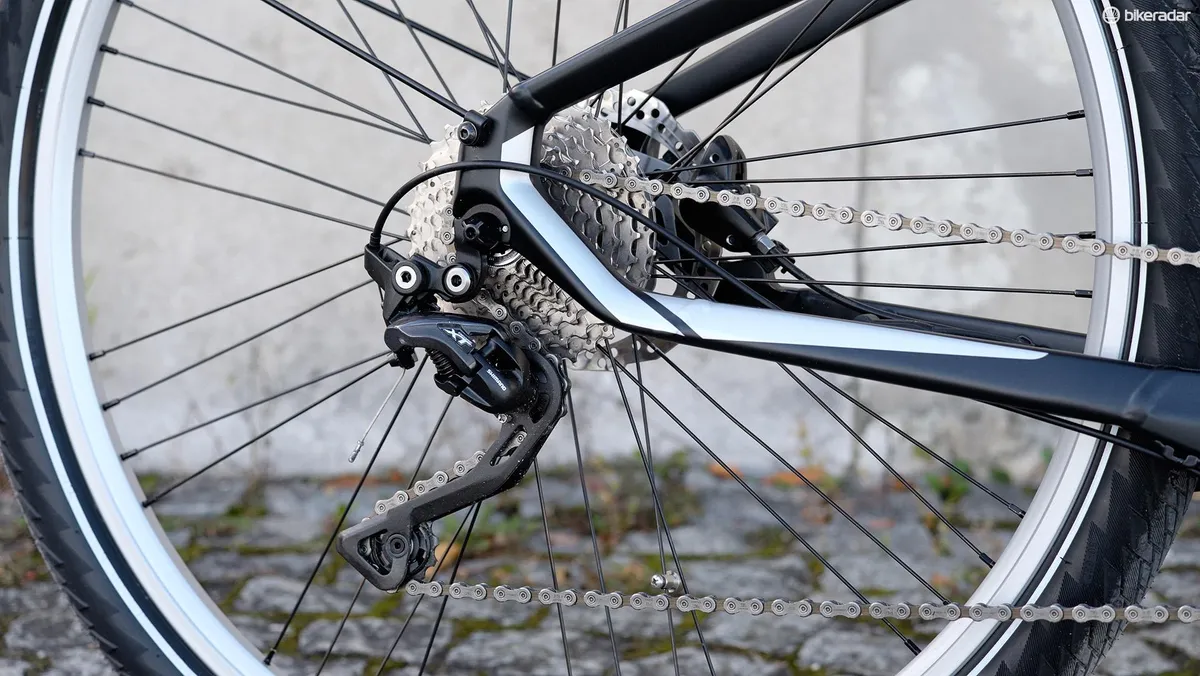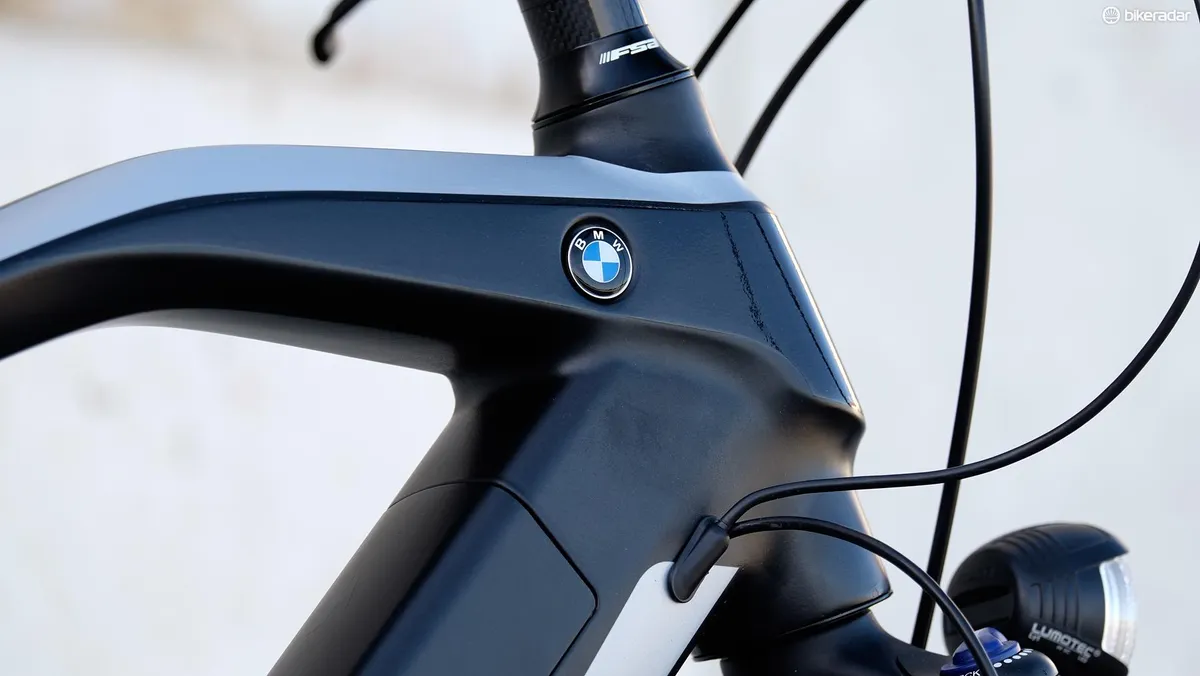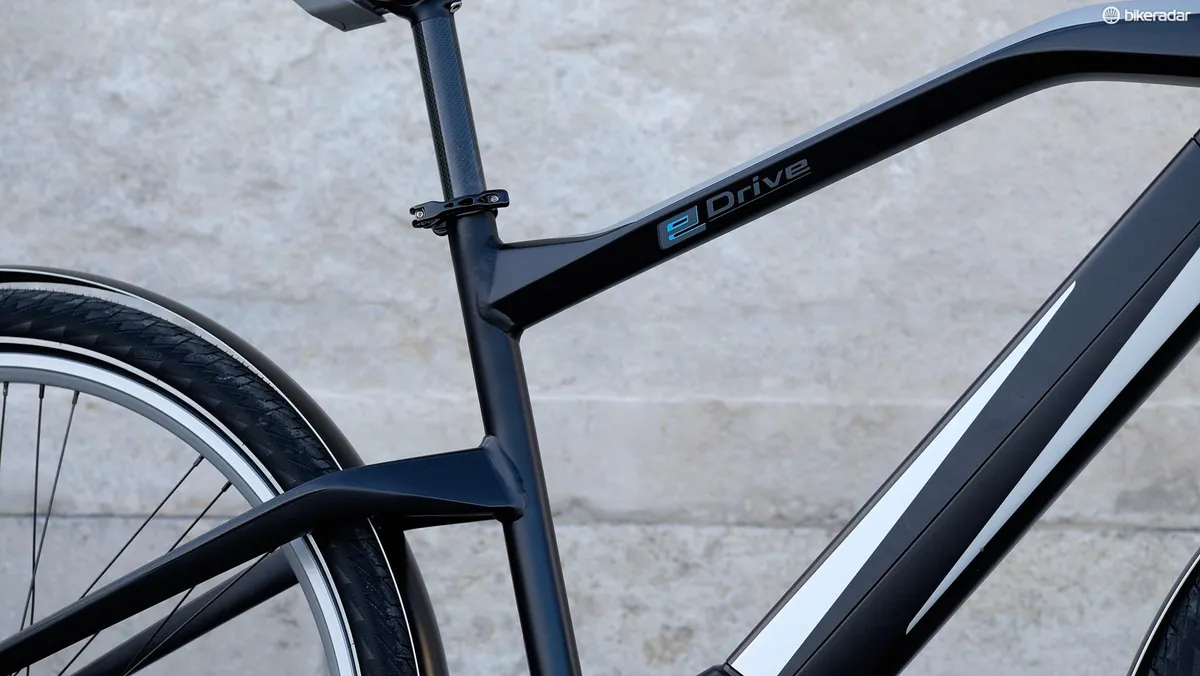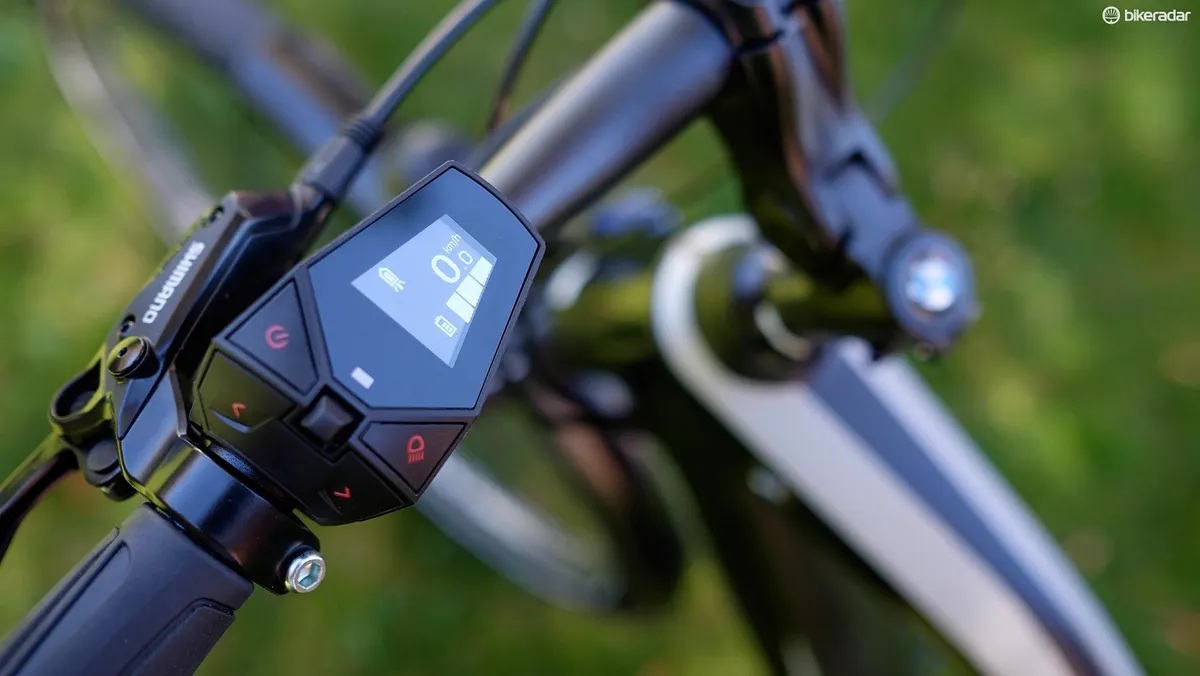Here is a new hybrid from BMW. I’m not talking about the awkward-looking but clever i3, nor the gorgeous yet surprisingly sensible i8. This is the Active Hybrid, a BMW e-bike that most of us two-wheel types will probably never encounter.
Why? Because the only way to get a good look at one will be via one of BMW’s many car dealerships throughout Europe.
- 5 disappointing collaborations from manufacturers you'll already know
- Yamaha's e-bike range coming in Spring
- Is a drop-bar e-bike the ultimate commuter?
That means it’s not a bike that would be sent out to the likes of BikeRadar for review, nor could it be ordered from your local bike shop. Instead it’s likely to sit in a box until a sufficiently wealthy and bicycle-unaware customer specs it as a pricey accessory to their new BMW car.
I think that’s a shame, because this isn’t some half-arsed rebranding exercise like many of us would expect. BMW branded e-bikes have actually existed since 2013 in a range that has continued to evolve each year and, from what I can tell, they’ve got to the point where they’re actually quite good.
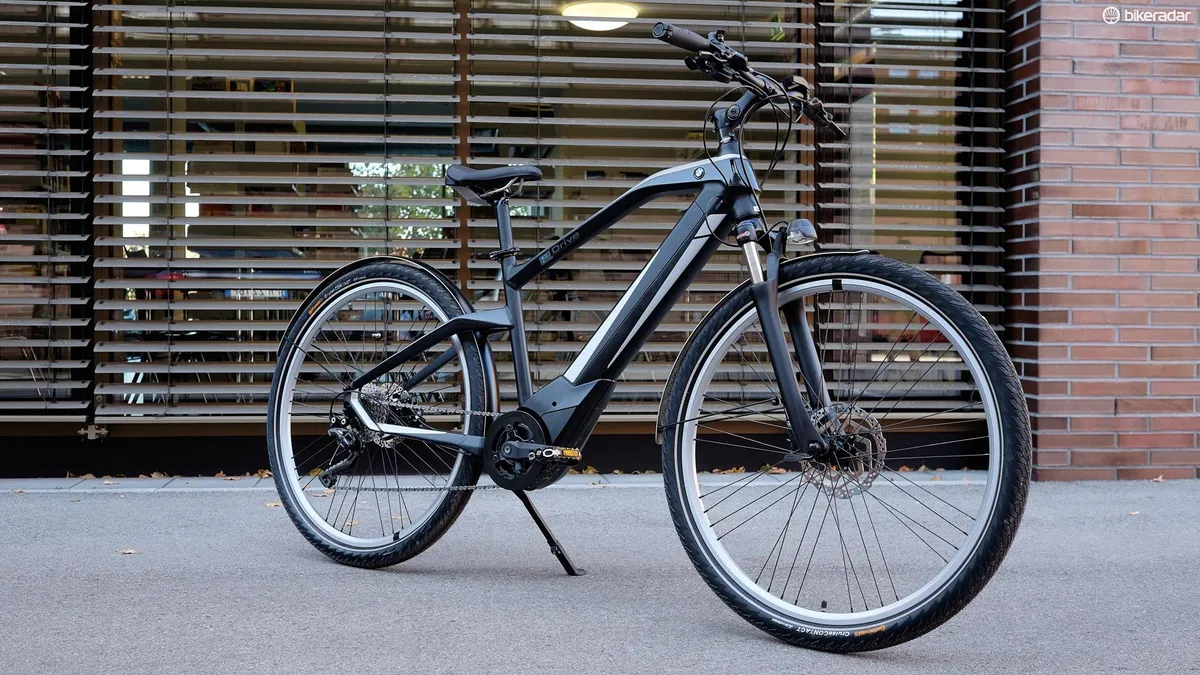
It’s hardly a signature BMW design to look at but squint at the design drawings and parallels can be made between this and BMW motorcycles of old. That’s no coincidence either, as it turns out this bike’s frame has been sketched and modelled in the same building as many products that hold that famous Bavarian roundel, and by the same hands responsible for products from Rolls Royce, MINI and BMW’s Motorsport and I divisions.
At what point does a company like BMW stop with its soft approach to bicycles?
It’s easy to look past the neatly integrated down tube battery for us bike nerds, it’s pretty much what we’ve come to expect, but the design team behind it was particularly proud of the car-like panel gaps it has created. The striking lines and unusual tube profiles of the alloy frame wear hues from the colour palette of existing BMW cars.
The bike’s spec is nothing out of the ordinary and makes use of mostly mid-range parts. Key to the recipe is a 250w Brose mid-drive motor, which puts out up to 90Nm of torque, that’s paired to a generous 504Wh battery unit at the frame’s down tube, which BMW says can deliver up to 100km of juice.
There’s also a Suntour NX suspension fork, Shimano Deore gears and entry-level BRM-315 hydraulic discs, while integrated lights and full-length mudguards are also included.
What was it like to ride? Well, for someone who has tested many bikes of this sort it was quite unremarkable but not necessarily in a bad way.
Its Brose motor delivered quiet and smooth power in a similar fashion to the unit that powered the Specialized Turbo Vado I’d had a go on a few months previously.

It shares a very similar drivetrain to the Turbo Vado too, with a 1x Shimano XT-based transmission, which made the same horrible machine-gun-like pings and cracks at the freewheel on said Specialized. It’s about time those who made e-bikes realised that regular derailleur transmissions are less than ideal for the task here.
The adjustable stem and riser bar made for a perfectly comfortable cockpit that worked well with the bike’s generous reach. It needed nothing other than its powerful, well-modulated Shimano hydraulic brakes either.
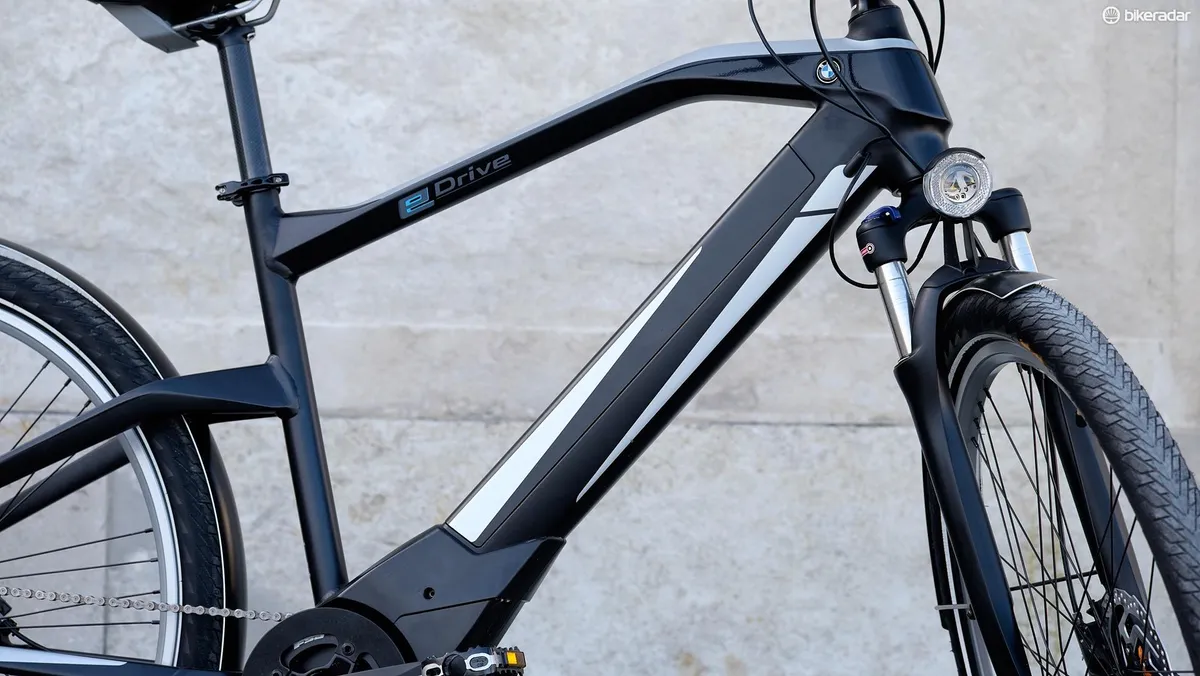
Less ideal was the BMW’s clattering mudguards and the underdamped Suntour suspension fork, which gave a power-sapping nodding dog effect for any out-of-the-saddle efforts.
Perhaps the most surprising thing about this bike is its price tag. The Active Hybrid E-bike retails for £2,500 here in the UK, and that’s actually quite competitive for a mid-driven Brose-powered bike. In fact, Brose-powered options from Scott or Specialized would cost considerably more.
It begs the question; at what point does a company like BMW stop with its soft approach to bicycles?
It seems to me that this is a company that’s very close to being able to produce respectable bikes that could prove hugely popular, and with the word 'mobility' being hot in the motor industry right now, then perhaps that's no coincidence.
